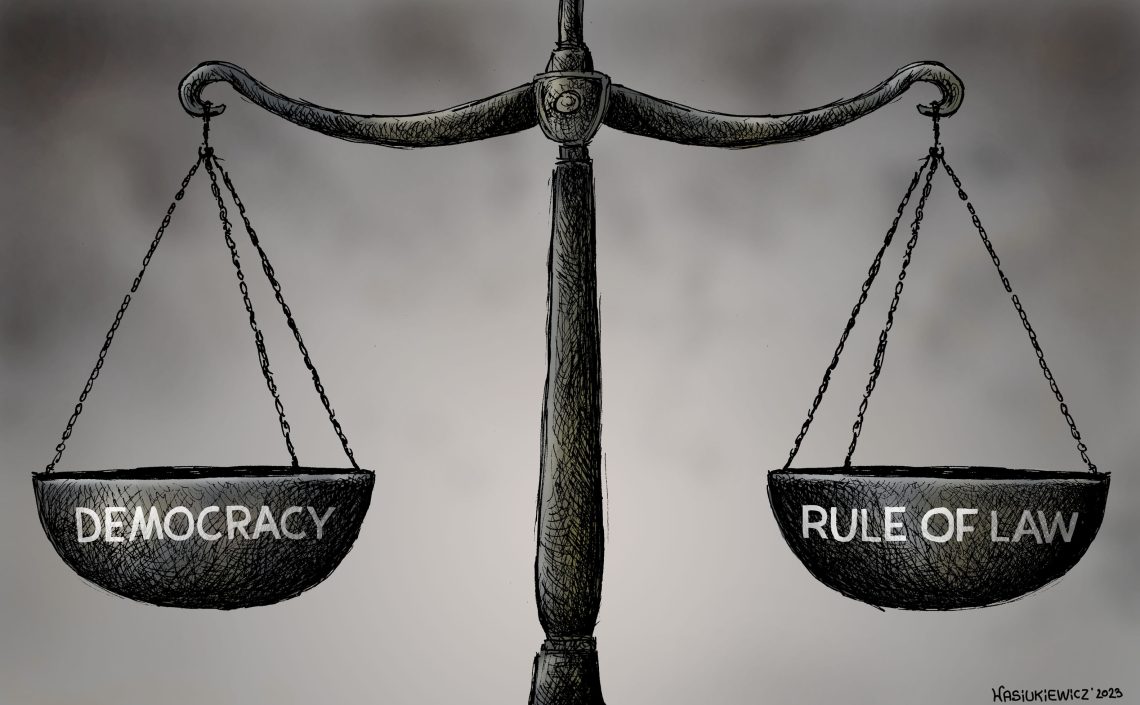Democracy vs. rule of law, the Israel example
The case of Israel shows that the principles of democracy and the rule of law do not always go hand in hand.

Israel is currently experiencing a constitutional crisis, marked by widespread demonstrations and deep polarization within the country. Recognized as a democracy and a nation founded on the rule of law, Israel finds itself grappling with internal issues, distinct from its conflict with the Palestinians.
Interestingly, we discuss this constitutional crisis in a country that lacks a comprehensive, written constitution. However, Israel relies on 13 “Basic Laws,” which some view as functioning akin to a constitution within their legal framework. Prime Minister Benjamin Netanyahu’s government, which has a majority in the parliament (the Knesset), seeks to enact legislation that would allow the parliamentary majority to override decisions of the Supreme Court, thereby sparking a clash between two fundamental principles.
At the heart of this clash lies the principle of the rule of law, which hinges on an independent judicial system, and the principle of representative democracy, founded on the will of the parliamentary majority.
The prevailing notion in public discourse, politics and the media associates “democracy” (now often termed liberal democracy) with the rule of law. The current situation in Israel clearly shows, however, that this idea is not entirely accurate.
To safeguard against the degeneration of democracy into a mere tool of the majority and party clientele policies – a trend we see, unfortunately, in several mature democracies – a system of checks, balances and, crucially, the rule of law, is essential.


